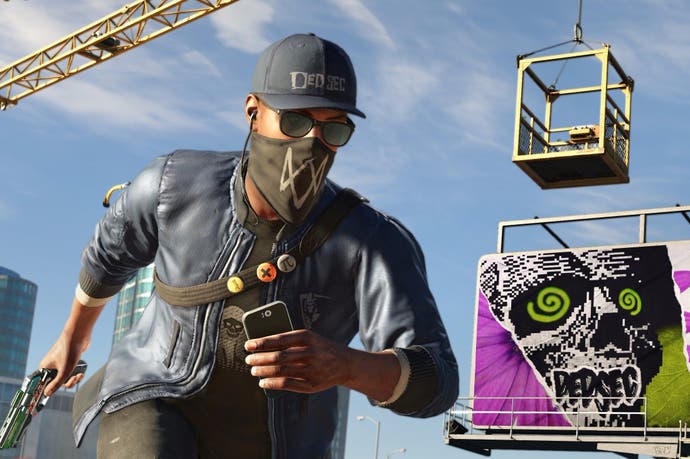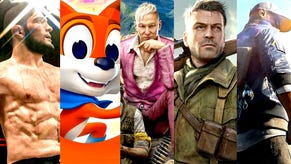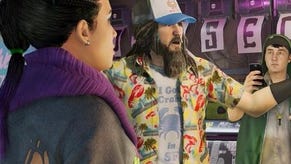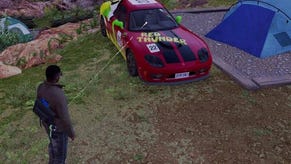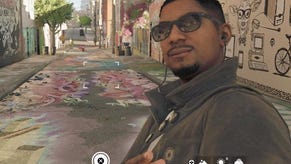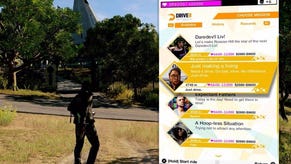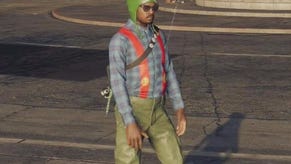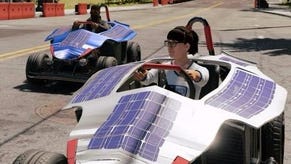Watch Dogs 2: "There are no towers"
Ubisoft says you can get away with barely touching the story.
If you've ever played a Ubisoft open world game then you'll know the score. Assassin's Creed features towers to climb which unlock missions around you. Far Cry features towers which, again, unlock missions around you. And - guess what - Watch Dogs 1 features towers which unlock missions around you.
Watch Dogs 2, on the other hand? It's going to be a bit different.
Ubisoft's hackathon sequel was revealed just before E3 via a showy livestream video. The footage introduced us to a bright new San Francisco setting and Marcus Holloway, a new main character. We also saw souped up gadgets and expanded hacking abilities, but how the game actually played, and how different the game's new progression system is, were left under wraps.
We subsequently played Watch Dogs 2 at E3, and I was pleased to find all of the above contributed to a fresher overall experience. The quadcopter drone immediately gives you a feeling of freedom, as well as spectacular views across the San Francisco bay area. Hacking cars and quickly issuing commands is as simple as a couple of button presses. And, best of all, there was no grumpy Aiden Pearce.
I only tried a slice of action from the game, a single mission that looped me around the San Francisco tourist trap of Pier 39, but all of the above mechanics were in place. And yet - and yet - none of this matters to me if we are still doing the same things; climbing those towers, slowly clearing the map.
I caught up with Watch Dogs creative director Jonathan Morin, back again to helm the sequel, to talk about just that. In a loud and chaotic press area in the bowels of Ubisoft's E3 booth, we chatted about how his team has focused on revamping the series' focus on story and sense of progression.
"It's not a game where you open your map and everything's there," Morin says. "There are no towers. You just explore the world."
Progression in Watch Dogs 2 is not tied to story beats or to set locations (like towers) which you must take over/climb/hack/scan/set on fire/delete as Ubisoft game appropriate. It's tied to your count of virtual followers, which you collect like a kind of XP as you complete activities and make discoveries in San Francisco.
"Players start with a few followers in [hacker group] DedSec but pretty soon you realise you're going to need more if you want to pull off big operations. So you start free-roaming," Morin continues.
"Every time you get followers, it's like you're unlocking the DedSec hivemind. You're also unlocking new knowledge, new operations, new co-op missions. And then organically you hit those end-game milestones."
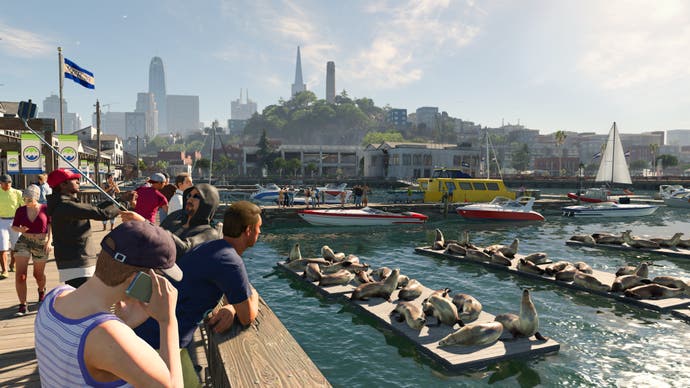
Without a focus on slow geographic progress across the city, and without the necessity to engage in a drawn-out campaign of story missions, the idea is for your San Francisco to feel more free.
"You can barely touch the story," Morin added. "You have many different operations which give you followers, which guide your progression." Within the story there are three "milestones" to hit which finish the game's narrative, he added, "but mathematically you can unlock everything else through co-op or free-roam".
Co-op play is a new addition to the game from its predecessor, which let players team up but only in a rather empty version of the game's open world. This time around there are fully-fledged co-op missions, although all of the game will be accessible to folk who just want a single-player experience.
"You can play the whole game by yourself, including the co-op content, although I think that'll be quite difficult," Morin laughs. "Still, there's always someone spectacular out there who can, so why not let them?
"What we're pushing for is having a seamless online, and integrating co-op into it. You can play different operations and choose to not even play the story. Activities will scale appropriately. And there is further progression so players stick around after the main story arc, if they want."
Watch Dogs 1 was scorned for its lacklustre storytelling, bland characters and gruff protagonist, whose ascent from loner hacker to loner super hacker, hidden away in a bunker full of technology was neither cool nor particularly much fun. Marcus Holloway is pretty much the opposite of all that. The follower system directly solves the issue of being a loner. Holloway is connected, and as part of DedSec works together with a network of others.
He's also young, and unlike the great majority of video game protagonists, not white. I like the fact Ubisoft has chosen to explore the background of a black character, although I want it to actually explore his background. The reveal stream made some mention of him being "profiled" in his past, and having a dislike of the police because of it. Would this be properly explored?
"We're definitely touching upon it but we want to do so via our own subjects," Morin explains. "So in Watch Dogs, it's this fact he's been profiled." Simply put, Holloway - a known hacker - was implicated for a hacking crime he didn't commit.
"Rather than the usual take on racism, one of our operations focuses on crime profiling based on colour. We have all heard examples where police wrongly profiled someone based on skin colour," he continues. "We think it's an interesting question to ask what would happen if people who did this tried to hide behind the [computer] code, who could just say - well, we just followed the code..."
"What happens when computers allow people to hide? Marcus gets very attached to that."
There's been a lot of discussion around how Ubisoft builds better games the second time around, with Assassin's Creed 2 the prime example. I'm still not sure Watch Dogs' sequel will match those genre-defining heights, but with a better story, an option to pretty much skip the story and no towers to climb, it's worth giving the benefit of the doubt.
